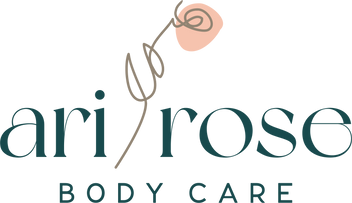It's not news that we're exposed to approximately 168 chemicals every single day. Little wonder, health advocates are paying focus to "Chemical Burden Body" - the accumulation of chemicals in our urine, blood, and breast milk. So, how are these chemicals finding their way into our system? One of the culprits lies on our beauty shelves - conventional soaps.
What About Conventional Soaps?
Regular soaps and washes are fantastic for keeping our bodies clean, fresh, and sweet-smelling. But there's a dirty side to them that many manufacturers may not want you to see. Many conventional soaps contain toxic ingredients that destroy the skin, affect your overall well-being, and impact the environment. These are some downsides of traditional soaps and washes to the skin:
- They can destroy the skin microbiome, destabilizing the healthy bacteria colony of your skin
- Strip oils and lipids from your skin
- Cause irritations such as dryness, itchiness, redness, etc...
- Compromise the normal function of your skin's moisture barrier
- Worsen skin concerns such as eczema, psoriasis, dermatitis, and rashes
In addition to destroying the skin, the harsh ingredients in such soaps can penetrate your skin and get absorbed into your body. When toxic substances accumulate in your system, they can lead to health issues such as allergies, endocrine disruption, nervous system damage, miscarriages, etc. And what's more shocking is that these health concerns sometimes go unnoticed until they have wreaked havoc.
In this post, I'll highlight six common dangerous ingredients found in our everyday soaps and the "dirt" they leave behind.
Sodium Lauryl Sulfate
If you ever leave your shower feeling extra smooth, soft, and squeaky clean, there's a high tendency that your bath product contains the famous Sodium Lauryl Sulfate (SLS). SLS is a chemical that is added to liquid cleansing products to form rich bubbles and boost foam.
Studies show that regular use of SLS-infused products can cause irritation to the skin and eyes. Also, it is suspected to cause cancer and hair loss.
Fragrance/Parfum
Scented personal care products such as soaps help to invigorate our senses, make us smell good, and even leave us relaxed. But there's a price we pay for it - our health.
According to research, the term "fragrance" is an Umbrella term that encompasses over 100 synthetic chemicals. What this means is that your single cosmetic product may contain more than 100 toxic chemicals. Now, imagine your body "gulping" all that poison. Fragrances trigger allergies, irritation, congenital disabilities, and reproductive concerns.
Synthetic Oils
A wide range of our cleansing products are formulated using refined hydrocarbons such as mineral oil and petroleum for hydration purposes. Exposure to refined oils, such as propylene glycol, has been proven to have adverse health effects, such as headaches, skin irritation, and dizziness.
Parabens
Certain preservatives in our cosmetics protect the product while attacking our health. An example is parabens. Parabens prevent the growth of microbial organisms and improve the shelf life of our body products. But do you know what else it does? It affects the endocrine system by mimicking the actions of the female sex hormone, estrogen. Studies claim that parabens have been identified in some bread cancer growths.
Alcohols
In our beauty products, alcohol acts as a penetration enhancer, that aids the absorption of certain ingredients. But how it aids penetration is where the problem lies. Alcohol improves absorption by destroying the skin barrier. And this is why our skin feels dry and irritated after we use an alcohol-based product.
Are there Safer Alternatives?
The good news is that there are safer and healthier alternatives to toxic bath products. These healthy options are formulated using natural, simple, and toxin-free ingredients. An exceptional replacement for harsh soaps is our Ari Rose luxurious bar soaps. Our bars are gentle enough for both the face and body, while the shampoo bar is a great alternative to your conventional shampoo. Each bar is created using plant-derived oils and botanical extracts that are amazing for the skin.
Are Bar Soaps Made of Chemicals?
Bar soaps are produced using caustic soda known as lye. When lye is used in combination with fats, it is converted to soap. This process is known as "saponification." During this process, the caustic soda mixes with the plant-based oils to form a completely neutralized substance that we have come to know as soap. Rest assured that despite containing lye, a natural occurring substance in nature, our bar soaps are completely safe for long-term use.
… Not all Bar Soaps Are Created Equal
Did you know that like your fingers, not all soaps are created equal? The drug store soap bars that we all loved during our childhood and teenage years were not actually soaps? Can you believe that?
Let's do a quick assignment. Check the label of your favorite soap to see if you'd find the word “soap" and I bet you, you won’t! Why is that? You may begin to wonder. It's because unlike botanical bar soaps that are made with real ingredients, popular and cheaper, conventional bar “soaps” are formulated with almost the same ingredients that are used to formulate detergents. The FDA does not allow traditional soap brands to write the word “soap” on their packaging because that would be the farthest from the truth.
Imagine washing your body with detergents! Yucky!! To get the Ultimate cleansing experience while you shower, do yourself a favor and use a REAL Soap Bar.
For a limited time, use code REALSOAP at Checkout for 15% off all Ari Rose soap bars.


